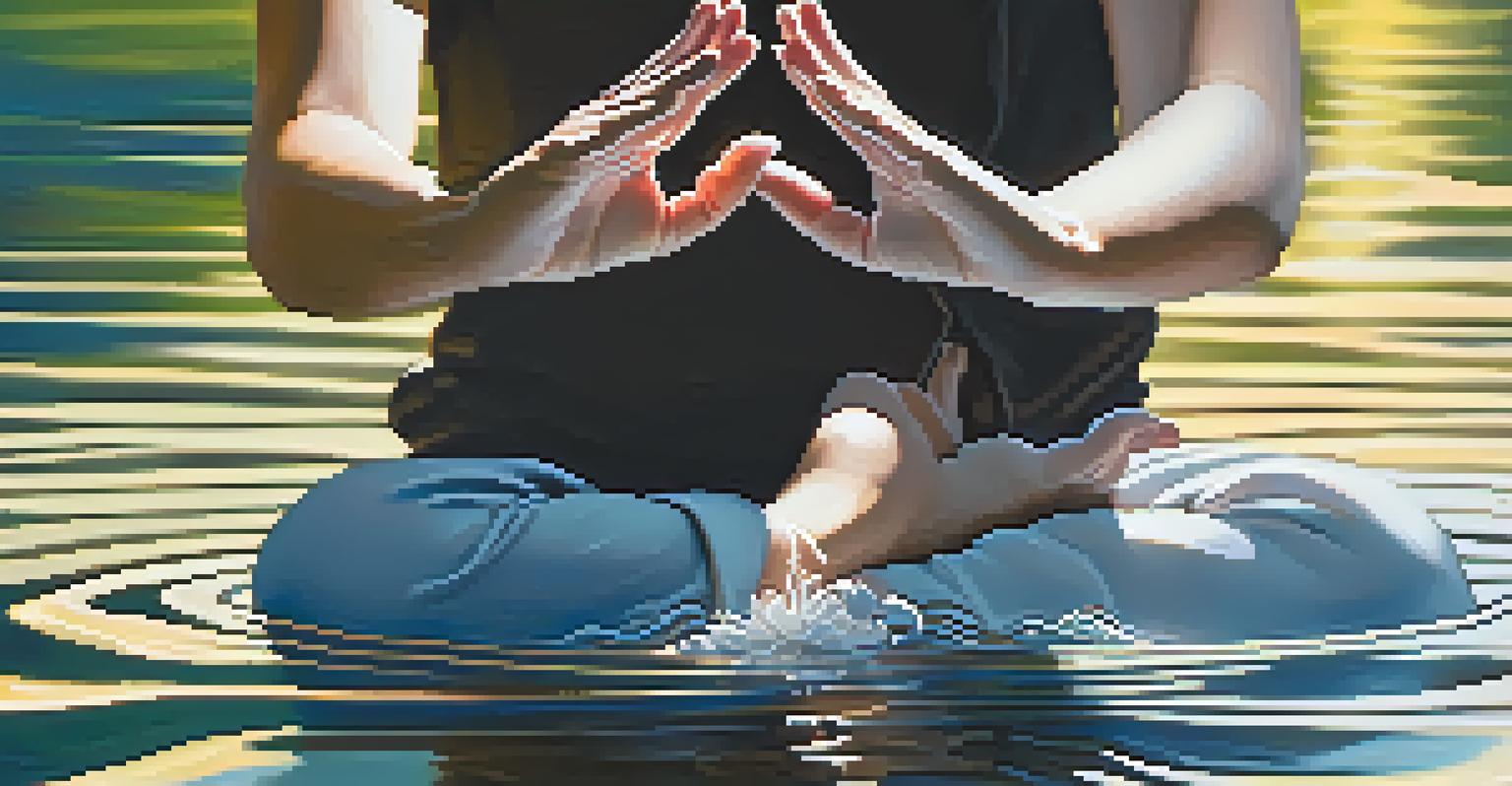How Meditation Aids in Healing During Personal Crises

Understanding Personal Crises and Their Impact
Personal crises can come in many forms, from the loss of a loved one to sudden job loss. They often leave us feeling overwhelmed and lost, struggling to find our footing. During these challenging times, our mental and emotional health can take a significant hit, making it essential to find tools for healing.
The mind is everything. What you think you become.
Meditation offers a sanctuary of calm amidst the chaos. It provides an opportunity to step back and gain perspective on our feelings. By creating a moment of stillness, we can begin to process the events that have shaken our sense of security.
In essence, meditation can serve as a lifeline that helps us navigate through our emotional storms. It's not about erasing pain but learning to coexist with it in a healthier way.
How Meditation Cultivates Mindfulness
One of the primary benefits of meditation is its ability to cultivate mindfulness. Mindfulness is the practice of being present and fully engaged in the moment without judgment. This practice can be incredibly beneficial during crises, allowing us to observe our emotions without becoming overwhelmed by them.

By focusing on our breath or the sensations in our body, we can create a buffer between ourselves and our thoughts. This space allows for a clearer understanding of our feelings, helping to reduce anxiety and enhance emotional resilience. It's like training a muscle; the more we practice mindfulness, the stronger it becomes.
Meditation Aids Emotional Resilience
Meditation helps regulate emotions and fosters a balanced state, allowing us to respond to crises with clarity and compassion.
As we develop this skill, we can better manage our reactions to stressors and navigate through our crises with greater ease. Mindfulness shifts our focus from what is wrong to what is happening now.
Meditation as a Tool for Emotional Regulation
During a personal crisis, emotions can run high, leading to reactions we might later regret. Meditation helps in regulating these emotions, providing us with tools to respond rather than react. By practicing meditation regularly, we can develop a more balanced emotional state.
In the midst of movement and chaos, keep stillness inside of you.
When we meditate, we create a space to acknowledge our feelings without judgment. This acceptance can lessen the intensity of our emotions, making it easier to manage them. Instead of feeling swept away by grief or anger, we learn to observe these feelings as temporary visitors.
As we continue to practice, we can respond to challenges with clarity and compassion. This shift can be transformative, allowing us to handle our crises with a sense of calm we might not have thought possible.
The Healing Power of Breath in Meditation
Breathing techniques are often an integral part of meditation. Focusing on our breath can ground us and bring a sense of peace during turbulent times. Deep, intentional breathing sends signals to our body that it’s okay to relax, counteracting the fight-or-flight response triggered by stress.
As we breathe deeply, we activate the parasympathetic nervous system, which calms the mind and body. This physiological response helps lower stress hormones, leading to a feeling of overall well-being. It's a simple yet effective way to regain control when everything feels out of balance.
Mindfulness Reduces Anxiety
Practicing mindfulness through meditation enables us to observe our feelings without judgment, creating space to manage stress effectively.
In moments of crisis, taking a few moments to breathe can serve as a powerful reminder that we have the agency to calm our minds and bodies. It's like hitting the reset button amidst the chaos.
Meditation Fosters Self-Compassion
Personal crises often lead to self-criticism and feelings of inadequacy. Meditation encourages self-compassion, allowing us to treat ourselves with kindness during tough times. It reminds us that it’s okay to feel vulnerable and that our struggles are part of the human experience.
Practicing self-compassion through meditation can change our internal dialogue. Instead of harsh judgments, we learn to speak to ourselves with understanding and empathy. This shift in mindset can be incredibly healing, especially when we’re grappling with difficult emotions.
By embracing self-compassion, we create a nurturing environment for healing. We acknowledge our pain without allowing it to define us, fostering resilience as we navigate through our crises.
Building a Supportive Community Through Shared Practice
While meditation can be a personal practice, it can also foster community. Joining a meditation group or attending classes can provide a sense of belonging during personal crises. Sharing experiences with others who are also seeking healing can be incredibly comforting.
Engaging in group meditation creates a collective energy that can amplify the benefits of the practice. It reminds us that we’re not alone in our struggles and that others share similar experiences. This sense of solidarity can bolster our resolve to heal.
Community Supports Healing Journey
Joining a meditation group can provide comfort and solidarity, reminding us that we are not alone in our struggles.
Moreover, community support can offer different perspectives on coping strategies. It encourages open conversations about our challenges, which can be therapeutic in itself, promoting healing through connection.
Integrating Meditation into Daily Life for Lasting Healing
To fully reap the benefits of meditation, integrating it into our daily routines is essential. Even just a few minutes each day can make a significant difference in how we handle personal crises. Consistency is key; it’s about creating a habit that supports our well-being over time.
Finding a time that works for you, whether it’s morning, midday, or evening, can help establish this routine. Start small—perhaps with just five minutes—and gradually increase the duration as you become more comfortable. The goal is to make meditation a nurturing part of your life, rather than a chore.

As meditation becomes a regular part of your day, its healing effects compound. You’ll likely find yourself better equipped to face challenges, with a clear mind and an open heart, ready to navigate whatever comes your way.